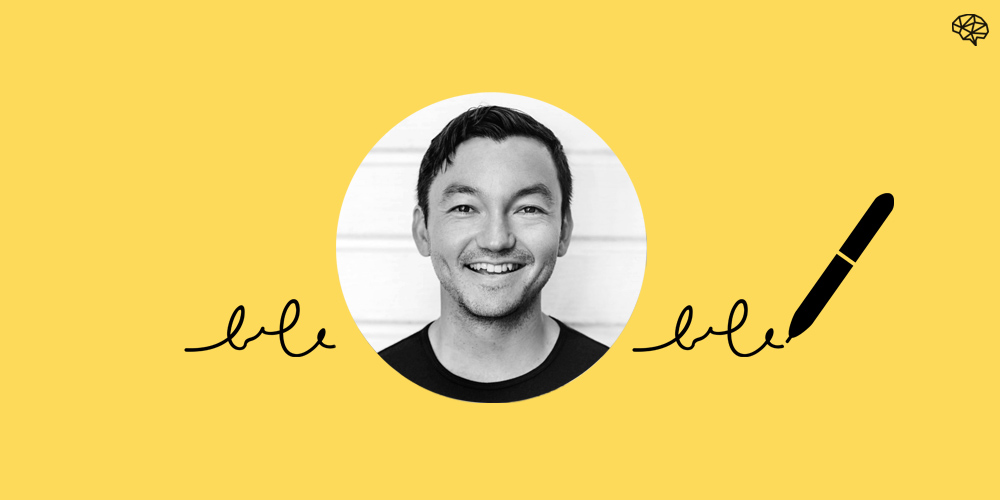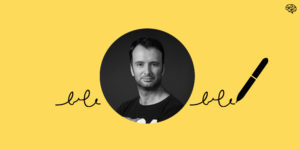I got to meet Peter Nakamura a few years back.
We were part of the same mastermind group in Toronto and came together once a quarter to discuss marketing strategies and play ping pong. Good times 👌.
One of the most impressive things Peter ever showed us was his life dashboard. He was tracking and optimizing every aspect of his life – his sleep, workouts, energy levels, everything. It blew away any corporate dashboard I’d ever seen.
Peter is the Founder and Principal Facilitator of PMN Design Lab, a product innovation consultancy. His mission is to help companies better understand their customers and build products that make a difference in people’s lives.
Prior to starting his consultancy, Peter led sales and marketing teams at Box of Crayons and Actionable. Away from work, Peter hosts a podcast called The Ikigai Project and enjoys tormenting himself in CrossFit classes.
In this interview, you’ll learn:
- How to force yourself to be efficient with strategic scheduling
- How to use a WHOOP tracker to better structure your day
- Why you need to give yourself permission to be unproductive
- The importance of setting good boundaries (no gray areas)
Here’s my (short) interview with Peter:
What does your work routine look like? Describe your typical day.
To me, a great work day starts with the night before. If I’m not getting a good sleep, you can say goodbye to my productivity and willpower. So sticking to a consistent bedtime routine is really important to me.
My mornings usually start by reading a few pages from a book (usually product, marketing, or strategy related) and writing out 1 or 2 key goals in my Bullet Journal. I also publish a post on LinkedIn and comment on other interesting posts in my feed.
The first morning block is what I call “Focus Time.”
I’ve learned over the years that this time block (9am to 11am) is my most productive time. So I try to keep it open as best as I can for deep work.
I try to avoid having my first cup of coffee until around 11am. Since your cortisol levels go up right after you wake up, there’s really no need to get caffeinated right after I get up. Lunch time is around 12-1pm. As an intermittent faster, this works really nicely
The afternoons are reserved for phone calls/meetings or preparing for client workshops. I usually wrap-up work around 3:30-4pm and head to my workout class. It’s nice having something like a class that I’m accountable to attend as it forces me to be efficient with my time during the day.
What’s your secret to an effective remote work setup?
I have a few standard things like a standing desk, an o-ring for my lighting, and a decent microphone (ATR-2100). People always comment on how nice my audio quality is, and I think small things like your sound and setup matter – both for you and the people you work with.
I also work a lot on Miro – a collaborative virtual whiteboard – which allows me to host conversations and workshops. People feel more heard when they can see you taking notes based on what they said. Plus, it’s great to have a handy place for everyone to come back to and check in on progress.
What helps you stay focused?
As I mentioned earlier, there’s really nothing like a good night’s sleep to help me stay focused. It’s literally night-and-day when you compare my focus and productivity on days when I get enough sleep and when I don’t.
I use a WHOOP to track my recovery score and see how ready I am to take on the day. When I’m in the “yellow” or “red”, I know those are days that I might want to take a bit easier or try to avoid making big decisions.
For that reason, I’m really careful about my sleep routine. I try to avoid consuming food past 8pm, TV after 9pm, and I’m doing my stretching routine on Skill Yoga around 9:30pm to be in bed by around 10pm.
What do you do when you’re feeling overwhelmed?
Exercise has been critical for me.
Over the past 2.5 years, I’ve invested in a CrossFit membership and it’s become a ritual for me. Spending 1 hour away from work and finding “flow” during the intense exercise really helps. It’s almost like rebooting my brain so I can release all the mental RAM and start fresh. Not surprisingly, some of my best business ideas have come from the post-workout reflections.
How do you help your team prioritize effectively?
I’ve been a solopreneur for the past 1.5 years so I can’t say I have a ton of good advice here. That said, having learned a lot about design thinking processes, it’s helpful to follow a framework like this when it comes to idea generation & decision making.
Discover -> Define -> Develop -> Deliver (and repeat)
First, create a space for your team to share as many problems/ideas as possible. Second, put some stakes in the ground by prioritizing on the most important problems to focus on. Third, create a low-risk prototype and collect feedback from real users. Fourth, launch the idea/product and circle back to discover other ways you can deliver value.
This process isn’t new or groundbreaking. If you’re familiar with The Lean Startup or agile processes, you’ll probably be very familiar with these principles but it’s surprising how so few teams do this effectively.
How do you strike the right balance between remote work and life?
Monitoring my energy and mood levels are really important for me. I think it’s counter-productive to try to force yourself to do something you A) don’t have the energy for and B) you’re not in the mood for. Of course, there are times you need to push through but it’s not sustainable for the long-term.
If I need a day to “reset” and make it an unproductive day, I give myself permission to be unproductive.
I focus more on taking care of my mind and body by going to the gym, going to bed early, cooking a healthy meal, and spending time with my partner or friends. We have an obsession in our society about being productive all the time. It’s important that I can be kinder to myself and take time off as needed.
What book or podcast has helped you the most?
The Courage to Be Disliked by Ichiro Kishimi is one of my favourite books.
I’m a people pleaser and this book taught me some important lessons around courage and holding firm on your own needs and desires. Along the same thread, Radical Acceptance by Tara Brach has helped me be a kinder and more supportive person to myself.
On the business side, I’ve really enjoyed Thinking In Bets by Annie Duke, Building a Story Brand by Donald Miller, The Mom Test by Rob Fitzpatrick, and Sprint by Jake Knapp. Whether it’s making better decisions, telling better stories, or testing your ideas out quickly these have been my go-to.
Editor’s note: check out our full list of recommended books for marketers & leaders.
Share one favorite productivity tool or tip.
I love using my WHOOP tracker. It provides me with all the information I need about my recovery and daily strain. And it helps me decide how far I can push myself during the day.
By building productive habits like a consistent sleep routine and knowing how hard to train, I’ve seen my heart rate variability and resting heart rate (both key indicators for training improvements) steadily improve over the last two years.
Any parting advice for remote workers?
Set good boundaries. I’m admittedly bad at this but my partner has helped me get better. She makes sure I’m setting clear boundaries between when I’m working and not working. No gray areas. And that includes weekends! It’s easy to let things bleed over when you have such flexibility – boundaries are the only way we can keep ourselves moving forward sustainably.
**
Thank you Peter!
You can find Peter on LinkedIn.
✌




